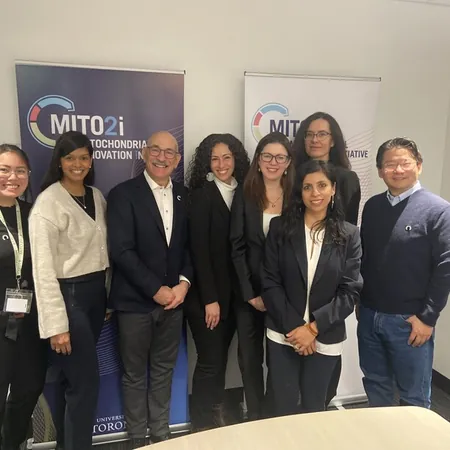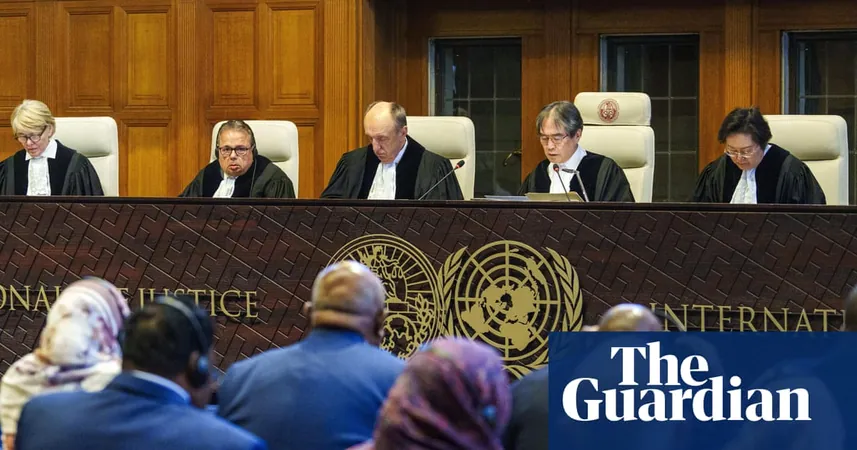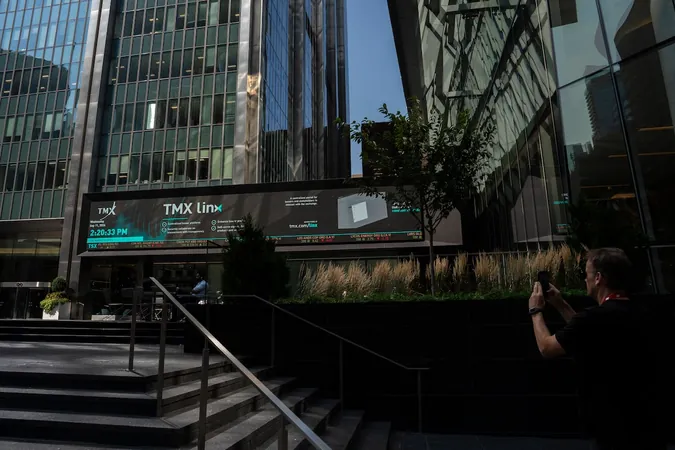
Mitochondrial Transplantation: A Game-Changer in Regenerative Medicine
2025-04-17
Author: Charlotte
Revolutionary Research Grant Secured
A groundbreaking step in regenerative medicine has emerged from the University of Toronto, where researchers have unlocked a $23.8 million grant from the New Frontiers in Research Fund. The focus? Mitochondrial transplantation therapy—an innovative approach set to transform the treatment of organ failures, chronic inflammation, and degenerative diseases.
Meet the Visionaries Behind MitoRevolution
Leading this ambitious project, aptly named MitoRevolution, is Professor Ana Andreazza from the Temerty Faculty of Medicine. As the driving force behind the Mitochondrial Innovation Initiative (MITO2i), she envisions mitochondrial transplantation as a cornerstone of future medical treatments.
The Power of Mitochondria Explained
Mitochondria, often dubbed the "powerhouses of our cells," are crucial for maintaining cellular health and function. When these cellular energy generators are damaged, it can lead to a host of both acute and chronic health issues. The MitoRevolution team is pioneering a method to deliver healthy mitochondria straight into injured cells—offering fresh hope for healing where traditional treatments fall short.
A Bold New Approach to Medical Care
Professor Andreazza passionately states, "We believe mitochondrial transplantation will reshape the landscape of regenerative medicine. We’re not just managing disease; we’re restoring vitality at the cellular level for everyone who needs it."
A Collaborative Effort for Transformative Solutions
This ambitious project involves an interdisciplinary team dedicated to advancing mitochondrial transplantation techniques. Professors Frank Gu and Andreazza are at the forefront, harnessing AI-driven technologies and innovative materials to develop feasible clinical systems.
Ensuring Safety and Efficacy
Working alongside them, Professors Milica Radisic and Sowmya Viswanathan leverage cutting-edge organ-on-a-chip technology and animal studies to validate safety and effectiveness. Meanwhile, Professors Ori Rotstein and Marcelo Cypel are preparing to transition these therapies into clinical trials across several organ systems.
Building Bridges to Community and Health
Additionally, Professor Mikaela Gabriel, along with partners like the MitoCanada foundation, is leading initiatives focusing on integrating Indigenous health perspectives and ensuring equitable healthcare practices across diverse populations.
Revolutionizing Medicine for Future Generations
The ripple effects of this research are evident. With the potential to significantly decrease inflammation and enhance patients' quality of life, mitochondrial transplantation could not only extend the lifespan of donor organs but also improve transplant success rates, thus broadening options for patients who previously saw their choices dwindle.
A Paradigm Shift in Treatment Philosophy
"This is a paradigm shift," asserts Andreazza. "We’re not just addressing symptoms—we're reinvigorating health at its very essence, empowering cells to heal naturally." The MitoRevolution project, fueled by innovation and collaboration, is poised to redefine the future of regenerative medicine.









 Brasil (PT)
Brasil (PT)
 Canada (EN)
Canada (EN)
 Chile (ES)
Chile (ES)
 Česko (CS)
Česko (CS)
 대한민국 (KO)
대한민국 (KO)
 España (ES)
España (ES)
 France (FR)
France (FR)
 Hong Kong (EN)
Hong Kong (EN)
 Italia (IT)
Italia (IT)
 日本 (JA)
日本 (JA)
 Magyarország (HU)
Magyarország (HU)
 Norge (NO)
Norge (NO)
 Polska (PL)
Polska (PL)
 Schweiz (DE)
Schweiz (DE)
 Singapore (EN)
Singapore (EN)
 Sverige (SV)
Sverige (SV)
 Suomi (FI)
Suomi (FI)
 Türkiye (TR)
Türkiye (TR)
 الإمارات العربية المتحدة (AR)
الإمارات العربية المتحدة (AR)